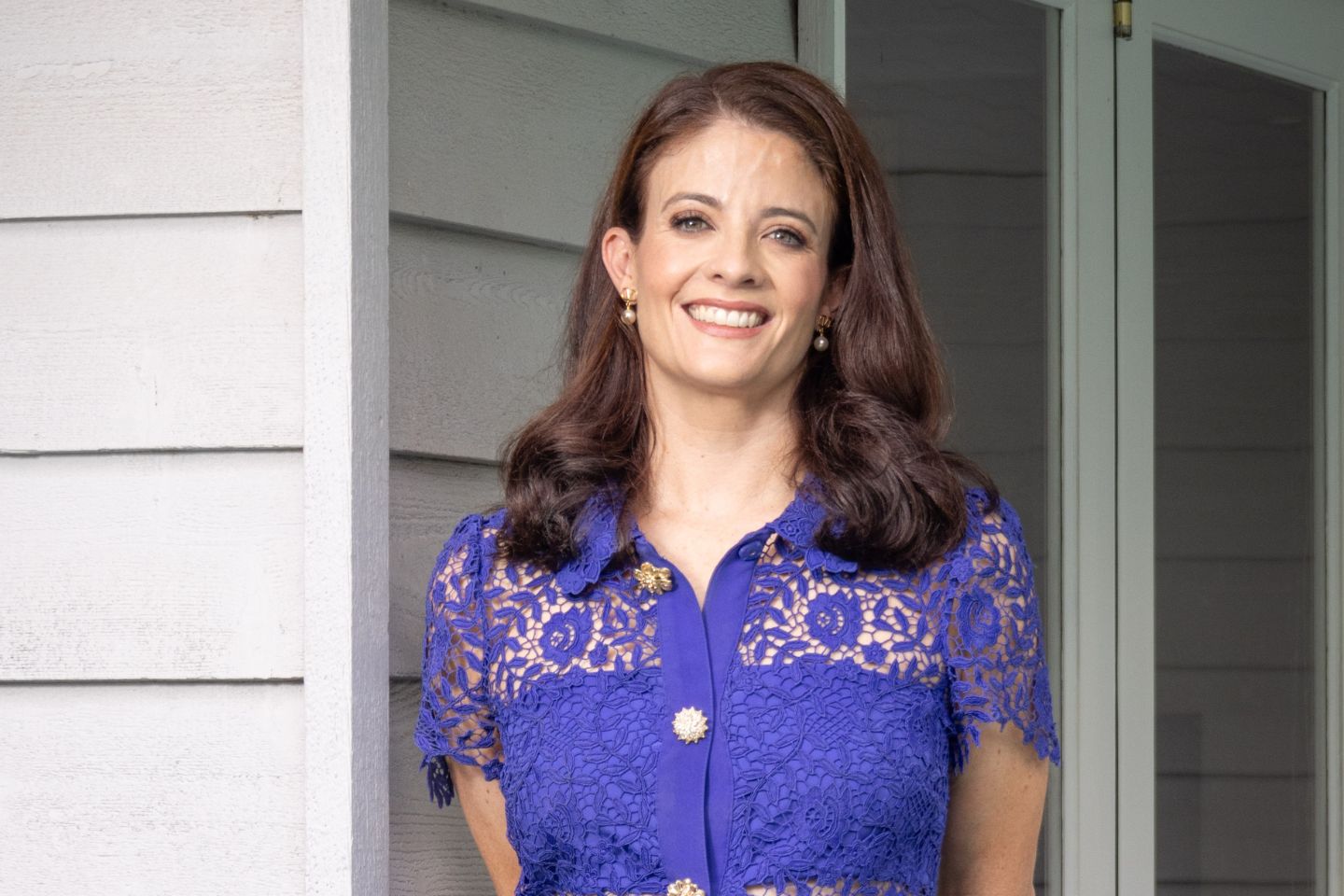Members of Perth’s venture capital community have thrown their influence behind The Volte, a designer fashion rental marketplace founded in Western Australia.
Inspired by circular economy leaders Uber and Airbnb, four friends-turned-co-founders launched The Volte more than five years ago and have gained the backing of BetterLabs Ventures, Dorado Capital and eBay Ventures, among others.
The co-founders – Bernadette Olivier, Jade Hirniak, Kym Atkins and Genevieve Hohnen – have grown the startup to the point it is now considered one of the largest luxury fashion rental marketplaces globally.
The Volte is a peer-to-peer online marketplace, which connects borrowers to 10,000 lenders across Australia without having to store any inventory. All items are delivered by mail.
Those lenders are either everyday people renting a dress or two or ‘super-lenders’ who have made a profitable business renting their wardrobe through The Volte.
Lawyer turned co-founder and chief executive Ms Olivier said the unique business model allowed the startup to scale unlike other players in the market.
“We’ve chosen to be a tech company,” Ms Olivier told Business News.
“When you take on inventory you really become a logistics company, and the cost associated with that makes it quite difficult to scale and reach profitability, which is what we’re seeing with other companies.
“We really believe our model is the right model.
“With peer-to-peer marketplaces, it takes a lot of focus. So, it’s about what you say ‘yes’ to as much as what you say ‘no’ to.
“For instance, it’s really tempting for us to get into resale, because resale is going bananas, but it’s a really crowded marketplace and it’s also really different to rental.
“Rental is more of a service as opposed to traditional e-commerce, and I think that’s why it’s been so difficult for traditional retailers to get into rental.”
The Volte has 70,000 dresses on its portal and 300,000 monthly active users, which Ms Olivier said reflected consumers’ shift away from disposable fashion.
Ms Olivier said lending a piece of clothing through The Volte became cost neutral after four orders, and lenders could then begin making a profit from their rentals.
Some lenders earn $100,000 per annum through renting their wardrobe, according to The Volte, with a single dress rented out an average of nine times.
Partners
Ms Olivier said the Perth investor community had provided strong support for the startup, especially throughout the challenging pandemic period.
In its latest funding round in 2023, The Volte attracted $4 million from Perth capital fund BetterLabs Ventures and eBay’s venture capital arm, eBay Ventures.
The Volte also has a commercial partnership with eBay through which its lenders can sell on the multinational e-commerce site at a reduced rate.
“The Perth investor market has been incredibly supportive of us since day one, and they haven’t just brought money to the table,” Ms Olivier said.
“Not only have they been really generous with their time and huge mentors of ours, they’ve also not been territorial, like when eBay came on, which has been an amazing investor.”
She said the onset of the pandemic was a challenging period for the company.
“It’s always easy to say you’ve got good investors when things are good, but COVID was really rough for us, and all of our investors were amazing,” Ms Olivier said.
“That took a lot of resilience, because despite what people said, people were not dressing up for Zoom calls.
“It allowed us to really focus on rebuilding our platform, focusing on the integration with designers. We took a big look at what was working and what wasn’t working. But without investors’ support that would not have been possible.”
She said the business was targeting another round of funding in a bid to capitalise on the boom enjoyed by the dress rental market globally.
“Some of our competitors overseas, particularly in the US, are raising huge sums of money with very little traction. I think that’s a sign that rentals are going from early adopters to mainstream,” Ms Olivier said.
“It’s also exciting that we have had a shift where designers were initially quite wary of dress rental and resale because of it potentially cannibalising their business.
“Where I think the industry is now is that they realised it’s not a trend and it’s here to stay.”
Circular economy
The circular economy model harnessed by The Volte has changed fashion from being disposable to an asset consumers can earn from, according to Ms Olivier.
She said the rise of fast fashion and clothes being viewed as disposable was a relatively new phenomenon among younger generations.
“If you look at our grandparents, they really treasured their possessions, repaired them and looked after them,” Ms Olivier told Business News.
“So, I think that’s been a real shift.
“At the same time, I love fashion, that’s why we’re in fashion, which is why I love the concept of sharing and renting because you still get that feeling of newness … without contributing to overconsumption.”
Ms Olivier said The Volte was also directly integrated with certain retailers and designers who could earn royalties through the business.
“What’s really exciting about that is we then pay the designer a royalty every time that item is rented or onsold,” Ms Olivier said.
“Designers and fashion producers are incentivised to make items that are durable because they can earn a lot in these royalties.
“I believe this is going to happen throughout the whole resale and rental economy.”
She said the integration also helped maintain authenticity within the ‘dupe’ market of copying designer clothing at a lower price point: a big issue in the industry.
For example, when consumers purchase an item from one of The Volte’s partners, the data will be shared and stored in The Volte’s database, creating a digital passport.

